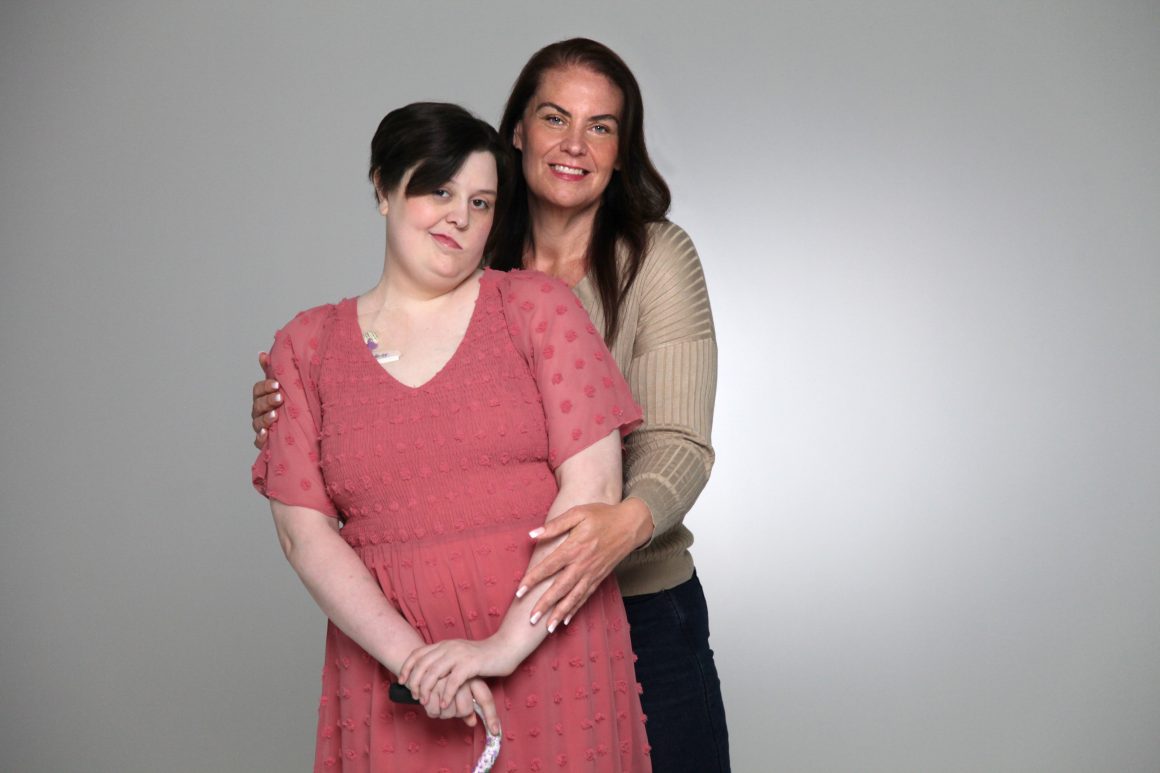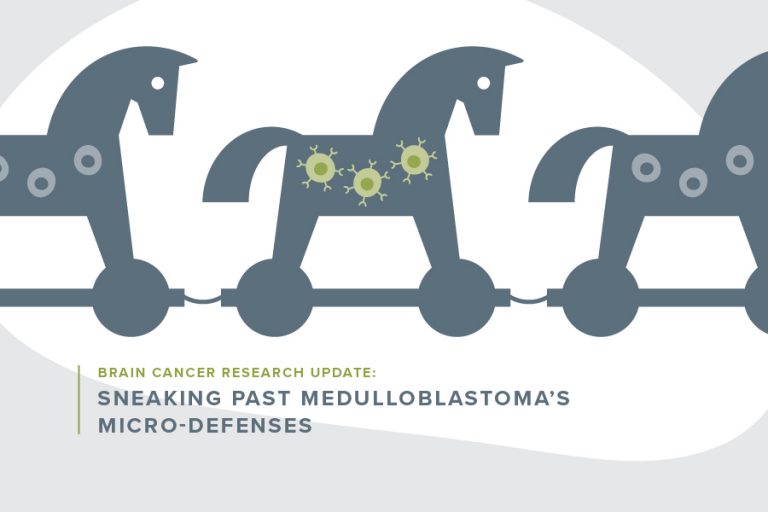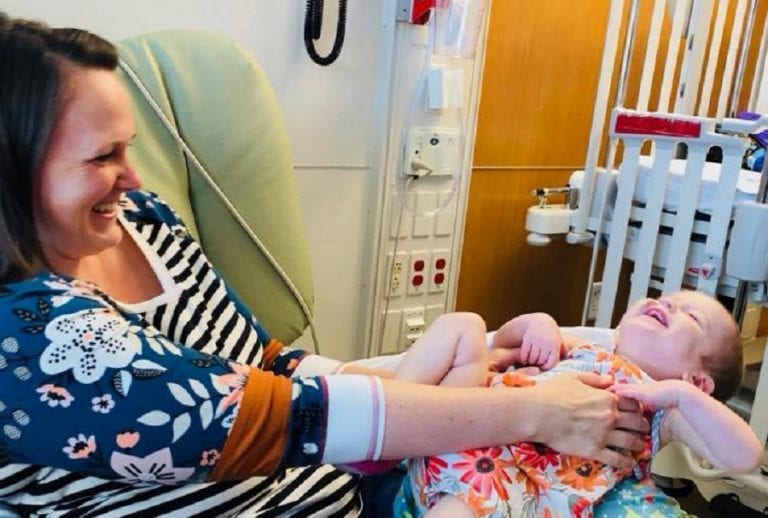When 16-year-old McKenzy and her mom, Beth, got the phone call telling her that she had cancer, her first reaction wasn’t to be sad or scared - it was relief.
Throughout her teenage years, McKenzy had eight surgeries to remove tumors in her nose and ears, but doctors were never able to give her answers about what was happening to her. After a year and a half of having surgery every few months, she was just thankful to have a clearer next step.
“I just wanted an answer, a straight-up answer,” McKenzy said. “Getting the diagnosis almost made things a little easier because now we thought there would be a better plan.”
McKenzy’s diagnosis was metastatic squamous cell carcinoma - it started in her sinuses, but by the time it was diagnosed, it had spread to her ears, skull base, and lungs. Doctors kept telling McKenzy and Beth that her condition was rare - they heard the word so many times they ended up banning it from their treatment discussions. McKenzy decided, early on, that she was going to keep living her life as normally as she possibly could.
“I had two days during my 96 hour infusion where I was too nauseated to go to school, but other than that, if I could go to school, I would,” McKenzy said. She attended a performing arts school and was active in theater, so keeping up with rehearsals and performances was a priority for her. “There was one day where the doctors told me I had scans on a certain day and I just started crying out of nowhere. They were like ‘What’s the problem?’ and I said, ‘I’m supposed to be in a show that day.’ They helped me reschedule. I really wanted to keep that balance.”
Going into Battle with Insurance
McKenzy’s treatment required teams from multiple different treatment centers, including Robert Wood, Sloan Kettering and NYU. This meant Beth spent hours on the phone with insurance companies fighting for her daughter’s necessary care. Beth is a doctor herself, so she has more insight than most parents when it comes to McKenzy’s treatment and insurance battles, but having to fight for your child’s care while they fight for their life has been exhausting.
“No matter how many times it’s clear that these appointments and surgeries and radiation and things are important and needed, she has to make the same call and get in the same battle every time about insurance. I’m so lucky that she’s done all that for me.”
McKenzy said it isn’t always easy to get support as a cancer patient - the journey is so long, and so few people stick around. There’s a swell of support after diagnosis, but as the treatment journey stretches longer, and the realities of cancer take you out of your community, support becomes scarce.
“It’s hard to have to ask over and over.” McKenzy said. “On social media it’s easy to see support - I can have 400 comments of love and prayers and things. And I appreciate that so much, but I don’t know how to ask for that in-person support sometimes.”
Sibling Struggles and Family Dynamics
During her seven years of treatment, McKenzy has had over 40 surgeries, as well as countless other treatments and hospital stays. For Beth, that means being by McKenzy’s side through it all - and for her three siblings, that sometimes means needing to be a bit more independent - and sometimes feeling lonely.
McKenzy says she recognizes that her treatments sometimes take her mom away from her siblings - and although that’s out of her control, she wishes it wasn’t the reality.
“I never wanted my siblings to feel lonely because of my health,” she said. “I want them to maybe feel more open to saying, ‘Hey, I know that McKenzy maybe didn’t feel well this time, but is there a chance mom can do this with me right now?’ I feel like maybe they felt afraid to have conversations about themselves. I want them to feel more comfortable bringing up things that they want and need - I hope that can still happen.”
Confounding Expectations
Initial treatments sent McKenzy into remission - doctors couldn’t find any cancer cells in her body. But in 2019, her cancer came back - and this time, doctors told her it was incurable. Today, her treatment consists of a single drug that was approved for “compassionate use,” meaning that it has not yet been fully studied or approved, but no other treatment option exists for McKenzy.
This drug - paired with McKenzy’s refusal to think of herself as a statistic - has helped her blow past all the expectations her care team had for her since her relapse. She was told she may not live long enough to attend college, let alone earn a college diploma. In 2022, she walked across the stage at college graduation, and has now begun a masters program in Library Sciences at Rutgers University. She’s read over 50 books so far this year and recently started a job at a library to continue sharing her love of the arts with others. While she’s still actively battling cancer, she’s done everything she can to build a life that’s not just worth surviving, but worth living.
The past few years have included major brian surgery, hearing loss and two hip replacements - but they’ve also included McKency directing Finding Nemo Jr, starring 35 kids ages 3-15. She plays guitar, sings and writes her own songs. Since losing and regaining her hearing, she’s had to relearn how to hear and sing. Here are a few lyrics to one of her original songs, which summarizes her cancer journey.
What if it all goes wrong?
What if it all goes right? It’s worth the fight.
They say it all happens for a reason
Or no reason at all
I know I just got to got to go on
Here comes another fall
And I know I’ll get up
And I know I’ll get up again
Join the fight with a Sustaining Gift
One of the biggest needs for childhood cancer research is consistent funding to drive breakthroughs and bring better treatments to kids faster. By committing to a monthly gift, you can provide that sustainable funding because kids don’t have time to wait. No gift is too big or too small to make a lasting impact in the life of a child fighting cancer.




